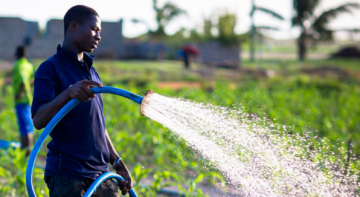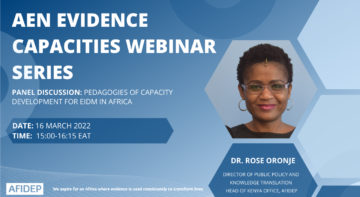Blogs

Tuberculosis (TB) remains one of the leading causes of death and the second leading cause of death from a single infectious agent after COVID-19. In 2020, 1.5 million people died from TB (including 214,000 people with HIV). TB infection is both preventable and treatable; nevertheless, infection continues to be a substantial public health concern. According to the World Health Organization (WHO), an estimated 85% of people who develop TB can be successfully treated with a six-month drug regimen, and deaths can be prevented with early detection, diagnosis and appropriate treatment.
TB primarily affects adults in their most productive years, with men being the hardest hit. In 2020, an estimated 10 million people fell ill with TB worldwide, with men accounting for 5.6 million cases, women 3.3 million, and children 1.1 million.
The Leaving no-one behInd: transforming Gendered pathways to Health for TB (LIGHT) consortium is a cross-disciplinary global health research programme funded with aid from the UK government, led by the Liverpool School of Tropical Medicine (LSTM) working with partners in Kenya, Malawi, Nigeria, Uganda and the UK: African Institute for Development Policy (AFIDEP), Kenya and Malawi; Zankli Research Center – Bingham University (ZRC), Nigeria; Malawi-Liverpool-Wellcome Trust Clinical Research Programme (MLW), Malawi; Respiratory Society of Kenya (ReSOK), Kenya; Makerere University Lung Institute (MLI), Uganda; and the London School of Hygiene and Tropical Medicine (LSHTM), UK. The LIGHT programme is working with decision-makers in Nigeria, Malawi, Kenya and Uganda to provide them with evidence on how they can enhance male access to quality TB healthcare. Gender-sensitive approaches in TB case finding, management and treatment can improve health outcomes and reduce transmission to other vulnerable populations in the community, including women and children.
Nigeria has the highest number of TB cases in Africa and accounts for 4.6% of the Global TB burden as of 2020. As men account for most of the estimated cases annually, gender-transformative solutions are needed to overcome barriers to TB care and prevention for all genders.
As part of the LIGHT programme, AFIDEP, in partnership with the ZRC, hosted a five-day training workshop on evidence-informed decision-making (EIDM) in Abuja, Nigeria. The training, 4 July 2022 – 8 July 2022, sought to enhance participants’ research skills and expand their knowledge and understanding of maximising research uptake and policy engagement.
The training convened 35 mid- and senior-level TB programme personnel with the capacity to influence TB policies from Nigeria’s National Tuberculosis and Leprosy Control Programme (NTBLCP), State TB Programme, WHO, Centre for Gender and Social Policy Studies at Obafemi Awolowo University (OAU), and ZRC. The participants were selected by their institutions to build their capacity in policy influencing as they champion interventions and strategies that address TB care and prevention and accelerate efforts in controlling the TB epidemic.
In developing the training, AFIDEP and ZRC conducted a needs assessment and asked participants to report on the skills they already possess in research and the policymaking process. Participants were also asked to share their research questions and interests. This information was used to inform the training materials’ content and emphasise the areas where participants lacked skills.
Participants’ research interests ranged from health systems interventions and capacities for improving case findings to social safety nets for health financing, patient empowerment, and health-seeking behaviour change. Participants indicated their areas of interest as fundraising, advocacy and communications, access to policy-influencing spaces, translating research into simple concise products for policymakers, and evidence dissemination at international conferences.
The Director and National Coordinator, National Tuberculosis, Leprosy and Buruli Ulcer Control Programme at the Federal Ministry of Health Nigeria, Dr Chukwuma Anyaike opened the training session with a great remark that noted the importance of evidence for decision-making: “NTBLCP has made great strides toward ending the TB epidemic in the country in the last two years and the EIDM training is timely as stakeholders globally are looking for evidence-driven strategies and evidence-driven policies to end TB.”
Furthermore, Dr Anyaike petitioned the expansion of the training programme, saying that more stakeholders working in communicable and non-communicable diseases must undergo the EIDM training. He encouraged the participants not to fear research because no one could fault evidence. He urged participants to learn from best practices in other African countries and do their own national research to develop homegrown solutions specific to the Nigerian context.
The training consisted of five modules that trained participants to source evidence, appraise, synthesise, and make policy recommendations. The pre- and post- assessments by participants demonstrated improved knowledge from 58% to 65% on the use of evidence for decision-making and stakeholder engagement. Additionally, participants learned how to influence policymakers through creative elevator pitches.
“I believe all the programme managers and key people in the national TB programme and beyond should be trained as well to make a change in the decision-making process,” a State TB Programme officer remarked.
The training was interactive, and participants were encouraged to share their experiences, making the sessions context-specific. By the end of the five days, participants had developed their policy question, searched for relevant evidence, appraised and synthesised it, and drafted policy briefs. They were able to make presentations documenting the process and received critiques and comments from their peers. Participants were encouraged to share the skills learnt with their counterparts within and beyond the TB programme to help build capacity in their work and the community at large.
Evidence-Informed Decision-Making (EIDM) is a process where high-quality evidence from research, local data, and professional experiences is synthesised, disseminated, and applied to decision-making in policy and practice. EIDM advocates for a push for the use of evidence in formulating and implementing policies, programmes, and practices for effective and equitable allocation of resources and formulation of cost-effective interventions.
Related Posts





